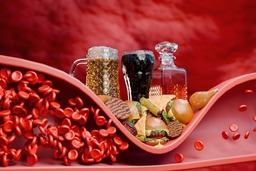6 Dietary Suggestions to Start Healthy Living

Healthy lifestyles keep our bodies fit. Dietary intake is one of them. The WHO claims that uneven dietary intake contributes to a variety of ailments.
Our health is impacted by everything we eat. If we eat a bag of fried crackers every day, it is no surprise that in the next four to five years we will have cholesterol issues. If we consume more sweet foods and beverages than our daily sugar intake, diabetes may develop during the next few years.
Let's deal with this fact: What we put inside our bodies has an impact on our health. Now, between eating a variety of foods that only taste good on the tongue but invite various diseases (diabetes, heart disease, stroke, cancer, etc.) and changing your diet to keep your body healthy and fit, what would you choose?
If you still have no idea, don't worry. We have some tips to help you understand a healthy diet. Take your time. Then, start with small steps.
1. Eat more veggies
It is basic knowledge that vegetables are healthy. They have a high water content. They are high in vitamins. Some of them can be eaten directly (carrots, lettuce, and cabbage) or must go through certain processing to maximize their nutritional content and flavor (spinach, kale, and cassava leaves).

Vegetables also contain many nutrients. Flavonoids in spinach have antioxidant and anticancer properties. It is also high in vitamin K and minerals, which prevent osteoporosis and strengthen bones.
If you have sleeping problems, eat kale. Sedative compounds found in kale act as organic sleeping medications.
Do you have any favorite vegetables? Eat them. Eating vegetables regularly is beneficial for digestive and eye health, preventing heart disease and diabetes, as well as lowering blood pressure, triglyceride levels, and glucose.
Make sure that 75% of your plate is a combination of vegetables, fruits, nuts, and seeds.
According to the World Cancer Research Organization, eating fruit and vegetables frequently can cut the chance of developing all types of cancer by up to 20%.
2. Limit the red meat
Do you like burgers? A burger contains 522 calories. Without intending to lessen your happiness, think about reducing your intake or eating it in small amounts. Burgers' primary component, ground beef, is high in saturated fat, not to mention the other components like cheese, butter, and sauces.

A Harvard School study found that consistently eating red meat may raise the chances of developing type 2 diabetes, coronary heart disease, stroke, and colon cancer.
Stephen Hu, M.D., a cardiologist at Scripps Clinic Carmel Valley, also says, "Red meat is high in cholesterol, saturated fat, and salt. You have to limit your consumption."
Feeling sad enough? Yes, us too. But we can still eat red meat twice a week, at 6 to 8 ounces per serving.
3. Beware of healthy fat
For optimum health, our bodies require a range of nutrients. One of them is fat. In addition to being an energy source, our body needs fat to create hormones and assimilate vitamins.

Fat enters the body in two forms. Unhealthy fat (saturated fat) and healthy fat (unsaturated fat). In the body, unhealthy fat accumulates. It has the potential to raise bad cholesterol and make us more susceptible to cardiovascular disease. Fried foods are among the foods that contain unhealthy fats.
Meanwhile, healthy fats help lower bad cholesterol, prevent plaque formation in blood vessels, and lower the risk of heart disease. This kind of fat is what our bodies need. The daily recommended intake of healthy fats is 50–80 grams.
Healthy fats are widely available. We can get them in avocados and various nuts, such as almonds and cashews. Several vegetable oils, including olive and canola oils, peanut butter, salmon, tofu, and soybeans, also have these healthy fats.
4. Select complex carbohydrates
Research found that our bodies only require 45–65 calories from carbohydrates. But people who are trying to lose weight frequently blame carbohydrates (particularly rice) for their condition. It is unfair. We should not do that if we understand the different types of complex carbohydrates.

Complex carbohydrates are high in vitamins, fiber, and minerals. They can reduce the risk of heart disease, control weight, and prevent colon cancer.
We can find them in whole grains, as well as some vegetables and fruit. Consuming complex carbohydrates helps us control blood sugar by preventing overeating. This is because complex carbohydrates are high in fiber, which keeps us full.
5. Reduce processed foods
Sausages. Hot dogs. Nuggets. Meatballs. French fries. Which one is your favorite food? Or maybe all of them? They taste good, right? We can set them up in a snap, though. Easy and fast. However, they are high in calories!

Processed foods are low in fiber but high in salt, sugar, additives, and preservatives. Very harmful to your health. In the long term, consumption of processed foods triggers problems such as cancer, cardiovascular disease, diabetes, and kidney disease.
Choose your processed foods wisely. Think, and then rethink, about when and how much you will eat them. Fiber and vitamin-rich foods should be included in your diet. Substitute fresh fruit or nuts, such as edamame, for instant snacks.
6. Limit your intake of sugar and salt
Reducing sugar and salt intake makes the body healthier. Excessive consumption triggers various diseases, such as stroke, heart disease, and diabetes.
Our body does need salt. But excessive salt consumption triggers an increase in blood pressure. So, limit your daily salt intake to less than five grams per day. Adding a spicy taste to our food can reduce the desire to add salt, ketchup, or soy sauce. These flavor enhancers are high in salt.
In addition to salt, we should limit our sugar consumption to 10% of our total energy intake. Avoid canned or carbonated beverages. Excess sugar consumption leads to increased dental caries and body weight. Avoid dehydration by drinking plenty of water.

Many foods contain hidden amounts of added salt and sugar. Consuming more vegetables, fruits, and whole grains, on the other hand, helps to offset the body's intake of sugar and salt.
It takes time and effort to nourish the body by changing unhealthy eating habits.



